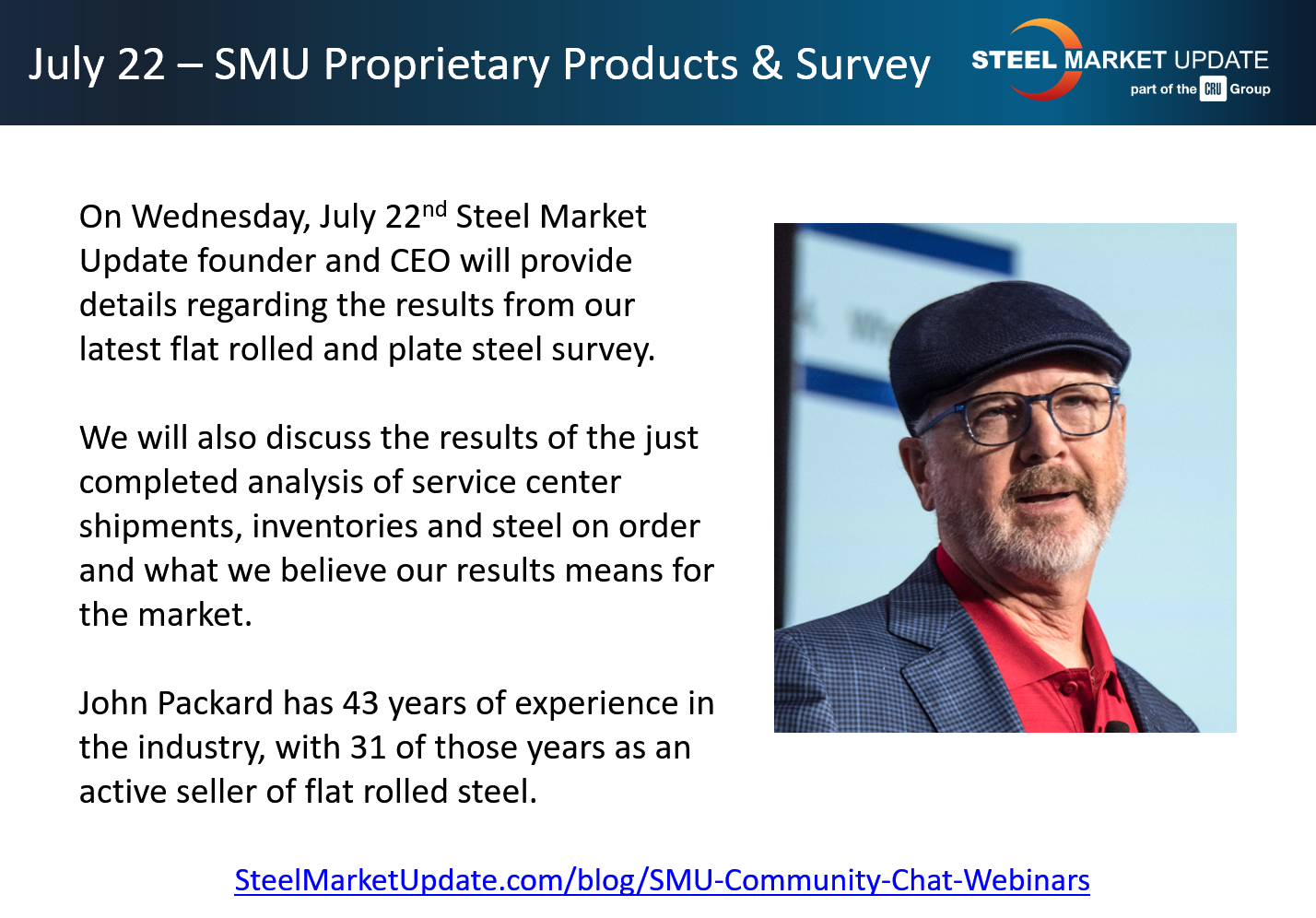Product

July 17, 2020
Still Time to Register for Wednesday's Community Chat
Written by Tim Triplett
Many subscribers to Steel Market Update don’t even know the full extent of the information available to them through SMU’s research. SMU President and CEO John Packard will host this week’s Community Chat Webinar, beginning at 11 a.m. ET on Wednesday, July 22, to enlighten both current and prospective members.
John will highlight the methodology and results from the proprietary research we conduct through our flat rolled and plate market trends surveys every other week. He will also share the results of our monthly analysis of service center shipments and inventories.
The webinar is free to all in the industry. Click here to register.








